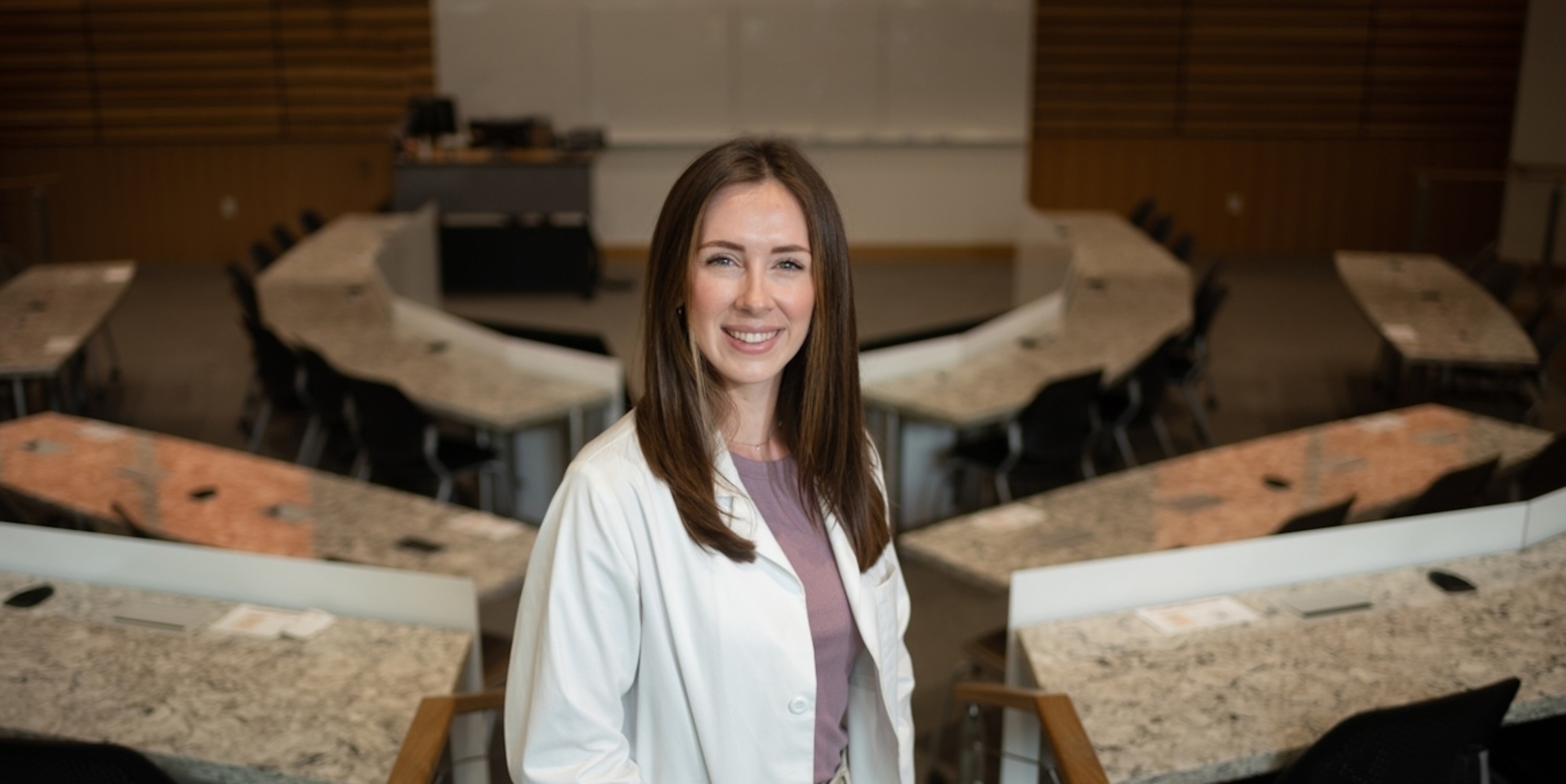Rachel Boaz Gorham knows a thing or two about stamina: While an undergraduate student in the summer of 2018, she rode a bicycle over 4,000 miles from Austin to Anchorage, Alaska, with Texas 4000 for Cancer, raising money for cancer research and support services across the U.S. and Canada.
Now, as she wraps up her third year as a medical student at Dell Medical School at The University of Texas at Austin, Gorham’s passion for improving cancer care hasn’t waned. This time, though, she’s off the bike and in the clinic, helping the Livestrong Cancer Institutes clinical team measure and improve the patient experience in ways that go far beyond disease management. Along the way, she’s informed by crucial lessons learned while pursuing a Master of Science in Health Care Transformation and leading Dell Med’s Oncology Student Interest Group.

What’s the problem you’re hoping to solve, and how did you come to recognize it?
Oncology was the reason I wanted to become a doctor in the first place; it was the people I met along the way riding for Texas 4000 who changed my life and the way I view the world. Complete strangers would see our jerseys and open up about the loved ones they’d lost, or share their own fight with the disease.
The problem: While people like to believe that patients are at the center of health care, the reality is that their experiences are often overlooked, undervalued or simply unknown. I am hoping to turn the narrative and put the patient back where they belong — front and center, with a voice that’s not only listened to, but proactively sought.
Through stories that summer, I quickly learned that what mattered to people wasn’t which chemo drug they got, how many side effects they had or how long they had to wait for radiation treatments. They found meaning in how they were treated as a human being. They talked about the oncologist that attended their family member’s funeral, the social worker who patiently helped them figure out their disability paperwork, or the chemo nurse who saved them the best magazines during treatment. It helped me realize that patients are just people, but somehow, we often forget that.
What are you doing about it during your time in med school?
Working with the incredible patient experience team at the Livestrong Cancer Institutes at UT Health Austin, the clinical practice of Dell Med, I had the chance to design and implement a survey asking the right questions from our patients. Instead of asking, “How satisfied are you with your care?” or “Rate the quality of the clinic facilities,” I get to ask if they feel listened to, if their beliefs and values are respected and incorporated into their care, and if their specific needs are being addressed.
This survey is part of a broader initiative around the institutes’ CaLM model of care, which is a unique, interdisciplinary, wrap-around care model that puts the patient at the center and immediately connects them to ancillary support services, links their treating physicians and helps to eliminate that fragmentation of care that is so pervasive in our health care system.
Patient experience is a newer field where outcomes like quality of life, empowerment and whole-person care can be evaluated and acted upon. I didn’t even know that research like this existed before medical school; I thought there was something wrong with me when I finally admitted that “traditional” research just didn’t appeal to me. But through this year I have realized my passion for qualitative research and was given the unique chance to spearhead my own project from start to finish. I am thankful to be part of such an innovative initiative, but even more thankful that they are willing to measure their success from the patient’s point of view.
The New York Times asks readers to tell their “Tiny Love Stories” in just 100 words. What’s yours?
“Is there anyone you know that I can ride for?”
This was our typical script. We were in a crowded, dusty McDonald’s in some tiny town in southern Colorado. To my surprise, the stoic man in front of me began to cry.
“I haven’t talked about her in years. Her name was Sarah, my wife. I can’t … I don’t talk about her anymore, I’m sorry.” He left, leaving me — a complete stranger, just there for a cheeseburger — with a piece of him. I got back on my bike, whispering her name so I would not forget, not ever.
This news feature is part of Dell Med’s Voices, a series of profiles that highlight the people of Dell Med as they work to improve health with a unique focus on our community.